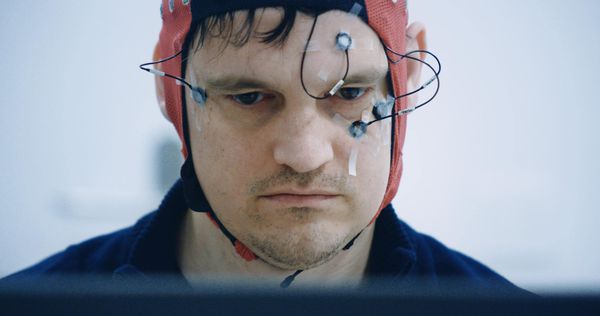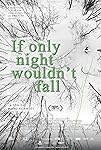Eye For Film >> Movies >> If Only Night Wouldn't Fall (2023) Film Review
If Only Night Wouldn't Fall
Reviewed by: Sunil Chauhan

Dutch director Marc Schmidt is no stranger to films on mental health. If Only Night Wouldn’t Fall continues his interest in the subject, as well as suggesting how it might be explored from unusual angles. Ostensibly an ensemble documentary with a cast of characters who speak about their own particular diagnosis and more generally, their individual lives, it also has an interest in organisations that work with people facing mental health issues.
We visit a school in Norway for troubled children, learn of one Dutch man’s history of psychosis, and learn of a community in Florida that collects’ residents data as part of a set of preventative measures to help improve health and wellbeing. Schmidt has a clear interest in these interactions with professionals and the sometimes unclear definitions of what constitutes a mental disorder, questioning whether diagnoses should be taken as fact, and how data is collected, and to what end. But If Only Night Wouldn't Fall isn’t a film that could be characterised as having a clear viewpoint. Deliberately resisting anything that might appear too straightforward or obvious, this somehow has the effect of making it seem peculiarly uncurious.
Some of the most intriguing scenes in the film are those where his subjects explain some of their behaviours (“I count things for no reason”) with an uncertain shrug, as if they aren’t entirely sure what it means themselves. But Schmidt seems most devoted to the small, quotidian details, the things that make up their lives beyond their diagnoses. It makes this a patient, observational piece, one that you have to wait for small moments of elucidation, but frequently, scenes that should be gratifying – such as when we see a teenage girl find catharsis in performing her songs in front of an audience – don’t quite hit the mark, as we don’t know these characters well enough.
The end result is an artful, ambitious, but somewhat thin tour across the mental health spectrum, from more common problems such as anxiety and depression to serious conditions like psychosis, and the institutions that aim to better understand them. In short, it’s about a lot, but without fully immersing itself in anything, or anyone, obliquely keeps both its subject and audience at arms’ length. The result is a film that feels far slighter than one with such a large remit should have.
Reviewed on: 06 Jul 2023















